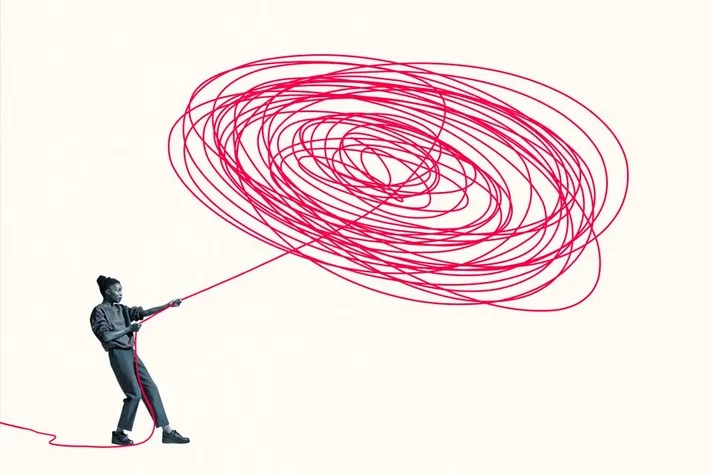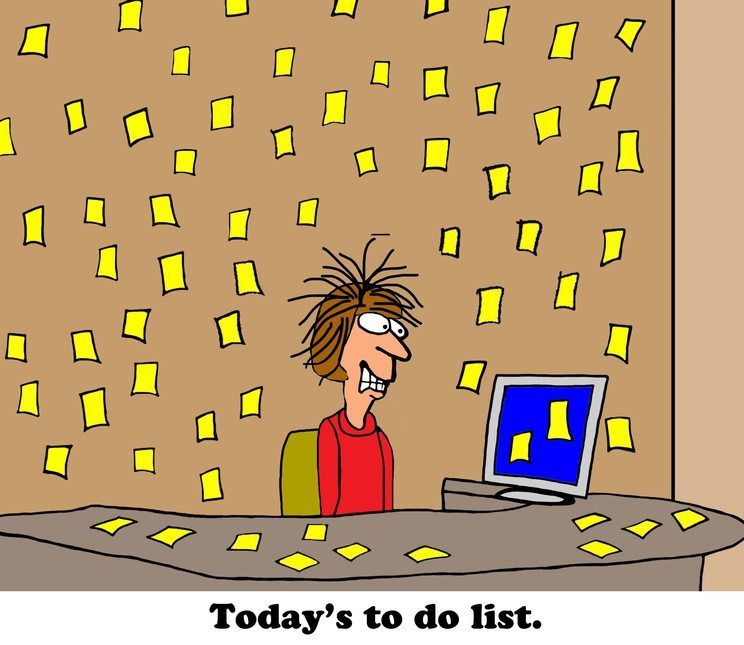How To Solve Problems In Everyday Life
“It's not what happens to you, but how you react that matters.” 05.10.24

How To Solve Problems In Life
There is an art to solving life's problems. Everyday new challenges pop up
unexpectedly. Forgetting things, running late, getting sick, technology failing; The list can go on forever. So how do we solve these problems? The answer
lies in how we react.
Since we can’t control problems or when they will appear, it's important to focus on what we can actually control. We get to decide how we're going to
react to the unforeseen situations.
Do we get frustrated and blow up? Do we choose to complain and do nothing? Do we pawn them off on someone else?
Owning the issue at hand and recognizing that we cannot change anything immediately is the first step. Take a deep breath and tell yourself "It's going to be okay."
How we react to problems is the key to finding a solution.
Compartmentalize The Problem
Problems always have emotional by-products. It's easy for frustration and anxiety start to creep in and clutter your mind. If you have ADHD like me, it makes it even worse. You become so focused on getting everything done at once, that you end up getting nothing done at all. Makes sense?This is why it's important to compartmentalize your problems. You break them down into smaller chunks. Stop looking at them as a whole, instead start to see them as smaller pieces. By breaking everything down we have a better chance of understanding what's in front of us and how we're going to get through it. Here's a list of steps.
1. Define the Problem: Clearly articulate the problem you're facing. What is the issue or challenge you need to address?
2. Identify the Components: Break down the problem into individual pieces or elements. What factors contribute to the problem?
3. Prioritize Components: Determine which pieces are most critical to address first. What aspects of the problem are urgent?
4. Organize Components: Arrange the components in a logical and structured manner.
5. Break Components into Subcomponents: Further break down the components into smaller subcomponents or tasks. Divide the problem into manageable chunks that can be tackled individually.
6. Develop A Plan Of Action: Determine the steps, resources, and timelines needed to take down the subcomponents.

This all sounds great on paper, but actually applying it may be a bit confusing at first. Let's take a common everyday problem that can apply to almost anyone: Feeling Overwhelmed By a Busy Schedule.
1. Define the Problem: The problem is feeling overwhelmed by a busy schedule.
2. Identify the Components:
- Commitments: Work meetings, appointments, social events, family obligations, etc.
- Tasks: Daily chores, work assignments, personal projects, etc.
- Responsibilities: Caring for children or elderly relatives, managing the household, etc.
- Time Constraints: Limited time available to complete the tasks and fulfill obligations.
3. Prioritize Components: Determine which pieces are most critical to address first. Maybe a doctor's appointment cannot wait. Or you need a haircut because you have an important work conference you're going to and you want to look your best. Figure out which things are most urgent and which can wait. Say NO to things that don't align with you (this is a big one).
4. Organize Components: Plan out a schedule that set's time aside to accomplish the most pressing components.
5. Break Components into Subcomponents: Your partner's birthday is a week away and you promised you'd throw them a birthday party. But you haven't even started the planning. Between everything else in life you have almost no extra free time. You don't want to leave them disappointed though, after all a promise is a promise. Well what makes up the planning? Invitations, food and drinks, date and time, and a birthday present all make up the bigger problem of needing to plan the party.
6. Develop A Plan Of Action: Most of the time this consists of making lists for me. My plan is to make a list of all the little pieces, and then figure out the time I can make it happen.
All The Small Things Add Up
There was a book I stumbled across years back called “Atomic Habits” by James Clear, that focuses on the idea of small incremental changes in ones behavior, and how together those tiny microscopic changes can help you achieve great things. Little successes adding up to an unimaginable victory. Instead of trying to change your entire life all at once, or solve a problem all in one foul swoop, you do it slowly and incrementally.The Problem of Wanting To Make A Change
Your problem also might run deeper than the everyday one. Maybe you want to make a change to better yourself and you are frustrated that you can't find the motivation. Maybe you want to be a better musician. You picked up an instrument recently but can't seem to find the will power to actually practice. Normally you stowe your instrument away under your bed after playing it. Well what if you instead leave it out of the case, and at the end of the couch. Everytime you sit on the couch you have already increased your chances of picking it up and practicing. Say it's only five minutes a day. Well over time, those fives minutes will add up and by the end of the year you will be a much better player than you were at the start. It's almost like tricking the mind. Or at the very least making it easier to remember.You Can't Do It All At Once
The same can be said for wanting to read more. Maybe you set a new years resolution that you were going to read ten books this year. Maybe it was only one book and it's Infinite Jest. And it's May and you haven't picked up a book yet. We've all been there. Try putting the book on your pillow so you have a better chance at actually picking it up. Try to read ten pages a day. You don't have to read the whole thing at once. Get into a flow state. We as humans are creatures of habits, and there can be a lot of upside to that if used properly. Little bits slowly add up.
You can't control what happens to you or what situations will arise. Living in today's world can be extremely stressful. Between cell phones, social media, and emails it feels like a never-ending stream of "I need to do this, I need to do that". You add in everyday problems and yeah, at times life can feel impossible. But it is possible. And by subdividing your problems into smaller ones, implimenting minor changes, or taking smaller steps towards goals you want to accomplish you can propel yourself forward.
Remember the one thing we do have control over when it comes to problems is our reactions. There is a lot of solace to be found in that.